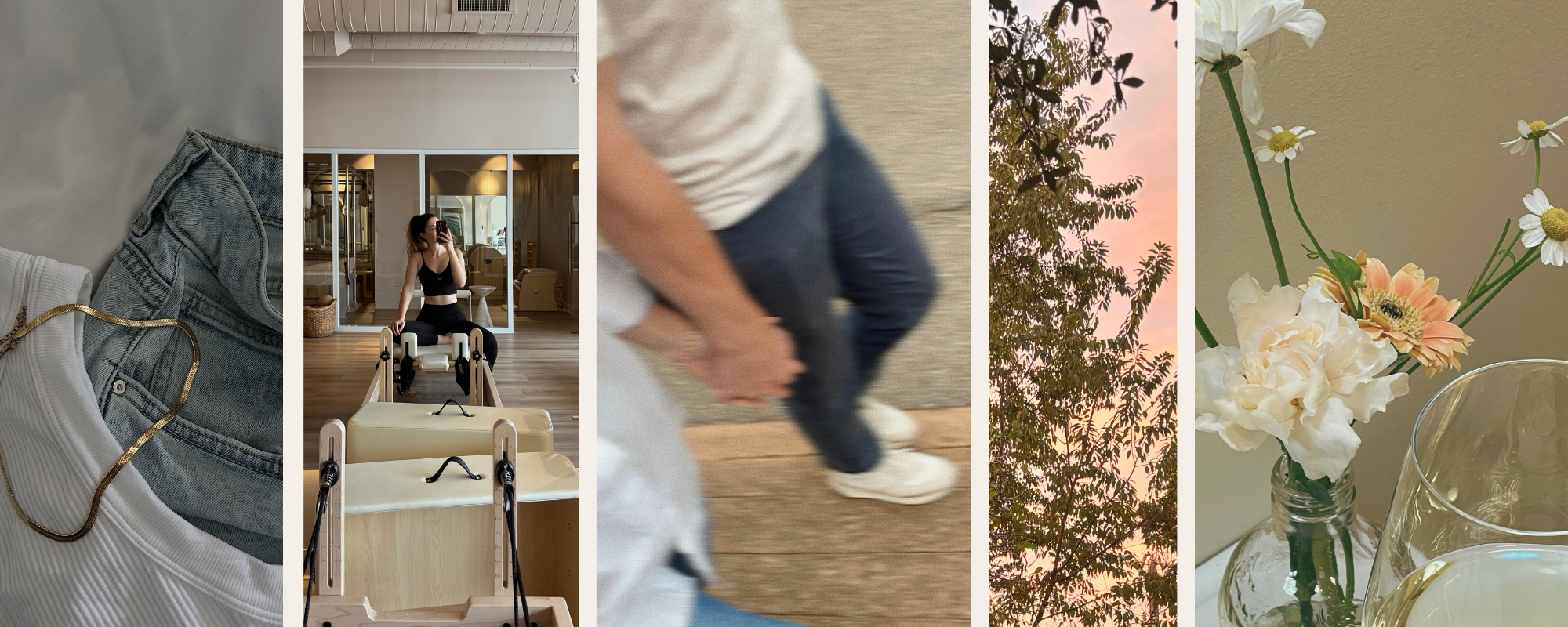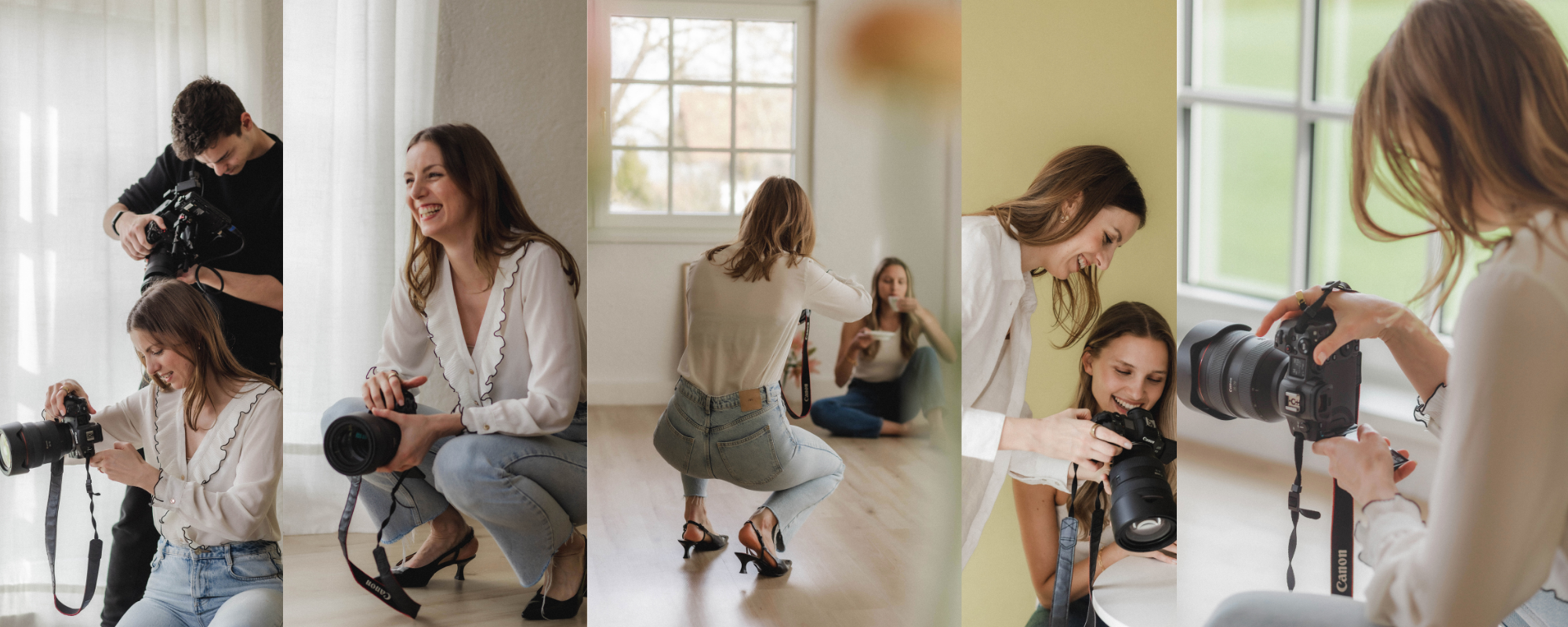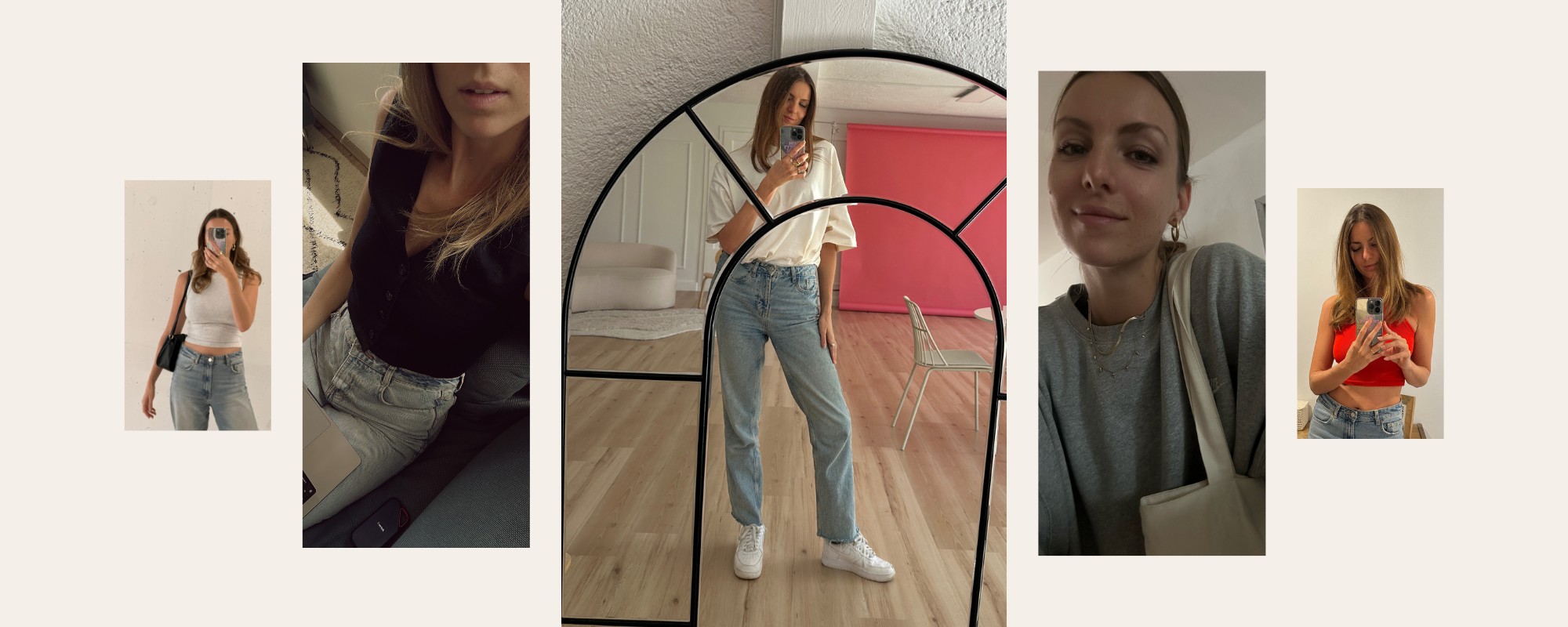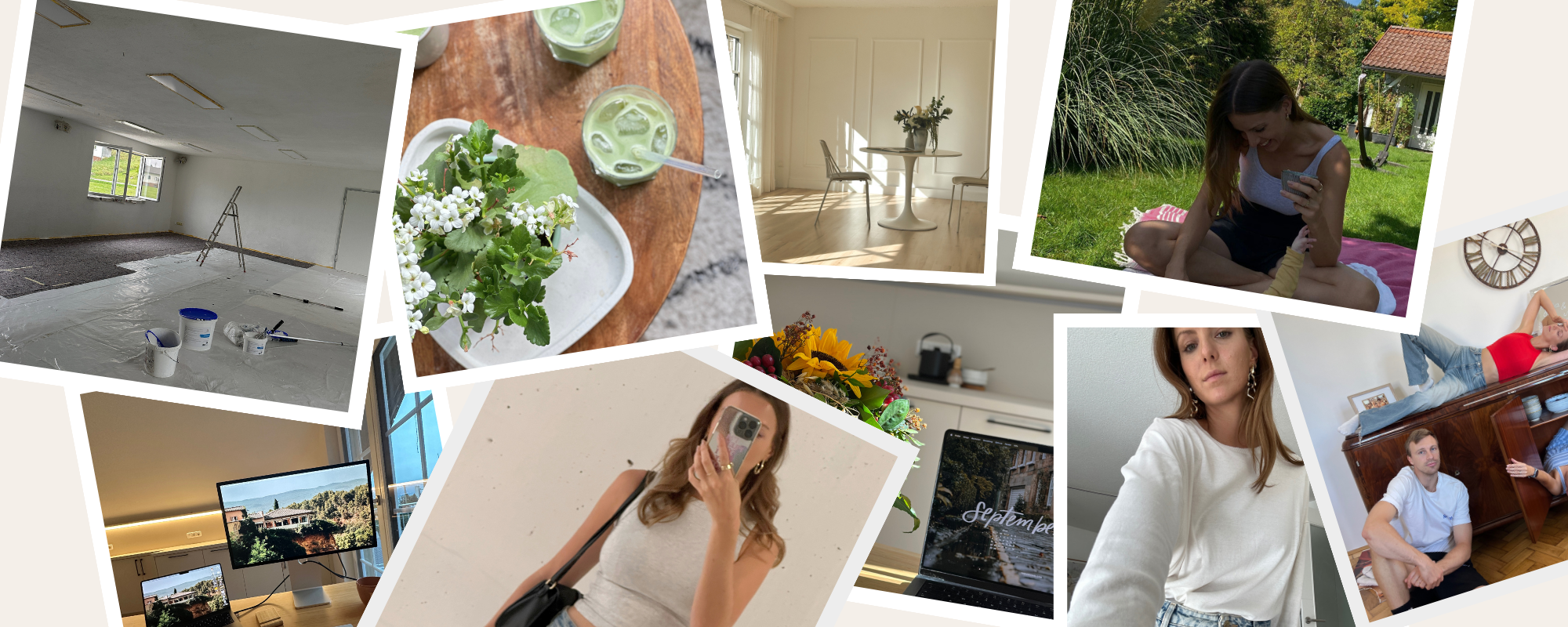
How You can Use the Term “Bare Minimum” to Improve Your Life Drastically in all Areas

How You can Use the Term “Bare Minimum” to Improve Your Life Drastically in all Areas
with love, Bettina
I’ve always been someone who over-analyses, over-thinks, and tries to find solutions with my brain rather than my heart or intuition. For years, I spent so much energy building perfect systems in my business, brainstorming thousands of content ideas, or trying to create the ideal daily routine. I wanted everything to feel perfect from the start, but often, that meant nothing actually got done. My overthinking paralysed me, and I would abandon new routines after only two or three weeks tops. Spoiler: I never stuck to a single challenge, workout, or habit long enough to see results. And I realised this was because I was trying to over-engineer everything before even starting, which is exhausting and unrealistic.
Then this summer, everything changed. I went through the biggest breakup of my life, and suddenly, I couldn’t rely on strategies or overthinking to fix things. I literally only existed. Breathing, eating, sleeping, and surviving. And that’s when it hit me: this is the bare minimum. And somehow, just existing felt enough. For the first time in a long time, I understood that all the extra pressure, overcomplicated plans, and unnecessary tasks I was adding to my life weren’t required for survival or even for happiness.
This mindset *the bare minimum* is something I started experimenting with in all areas of my life. And now I want to share with you how applying it beyond dating can actually transform your life drastically.
Work & Business: Know Your Non-Negotiables
Whether you’re self-employed or working for someone else, your day is filled with tasks. But here’s the thing: not all tasks are created equal. Some are true non-negotiables, you must do them for your work to function. But many are added on because of comparison, perfectionism, or fear of missing out.
I used to spend hours agonizing over social media content visuals, captions, or small tweaks that barely mattered. Looking back, much of that effort didn’t serve me or my business. If I had focused on the bare minimum (doing what truly moved the needle) my energy and results would have been better.
Here’s a simple framework I use to separate tasks:
- Bare minimum: Non-negotiable tasks that must get done.
- Nice-to-have: Tasks that add value but aren’t necessary. Do these consciously, as a gift or indulgence, not out of obligation.
- Unnecessary: Tasks that don’t align with your priorities or your goals. Let them go.
This approach also applies to trusting your colleagues or team. If you’re double-checking everything because of distrust rather than necessity, ask yourself: does this truly need my attention? Recognizing the bare minimum in your work frees mental space and reduces unnecessary stress.
Wellness & Self-Care: Intentionality Over Hype
Wellness and self-care are everywhere online right now, and much of it is marketing. Collagen powders, skincare routines, meditation apps, they all promise an emotional result: calm, confidence, or glow. But the product itself isn’t magic. True self-care is what genuinely makes you feel good, and it doesn’t have to cost a lot or anything at all. Remember what the word stands for: it’s about caring for yourself. And are you really caring for yourself more after buying another Gua-Sha version?
For me, self-care at its core is sleep, hydration, movement, nutritious food, and time outside. But I also love my matcha latte, my skincare rituals, and little indulgences that bring me joy. The key is that I do these for me, not because someone online told me I needed them. I invest in these things consciously and joyfully, without comparison, guilt, or pressure.
Define your bare minimum for self-care: 2–3 habits or rituals that you can commit to daily. Then, if you want to indulge further like trying a new product or wellness trend, do it intentionally, because it truly brings you joy, not because it’s trending.
Friends, Family & Relationships: Boundaries Are Key
The bare minimum also applies to relationships. Here, it’s about two things: what are you willing to give, and what are you willing to receive? Defining this creates clarity, reduces stress, and helps protect your energy.
For example, after my breakup, people were reaching out constantly to “check in.” While intentions were good and I truly appreciated all the support, I realized that talking endlessly about the breakup was sometimes more about curiosity than helping me heal. What I learned during that time was that as soon as I was talking about it, I was in my brain, but not in my heart or my gut. So when it comes to decisions and people tell you to “listen to your gut”, then you truly don’t need to talk another hour and list all the pro’s and con’s around something, but feel into what your inner voice has to say.
During that time I had to define my bare minimum for interactions: what I was willing to share, and what I expected from friends and family.
This also includes recognizing that you are allowed to disappoint people. This is something a friend of mine told me not long ago and it stuck with me. It almost made me feel uncomfortable. You are allowed to disappoint people. Let that sink in. Nothing happens if you do. Relationships might change but as long as you stay true to yourself then those relationships maybe even are supposed to change, right? Staying true to your boundaries may not please everyone and that’s okay. You can maintain your energy and sanity while still caring for others in a meaningful, realistic way.
Creativity & Hobbies: Do It Just for the Joy
When it comes to hobbies and creativity, the bare minimum is simply engaging in activities that bring you satisfaction without external pressure or comparison.
For me, painting freely, running without a goal, or journaling are practices where I experience flow and joy. The moment I set goals, benchmarks, or expectations, it becomes work rather than fun. Simple, guilt-free creativity is a key part of applying bare minimum principles.
Home & Lifestyle: Focus on What Truly Matters
Everyone’s home and lifestyle bare minimum is unique because we all value different things. That is also the beauty in the bare minimum mindset. It looks different for everyone, in any life area. In the end it comes down to what you value in your life & how you want your life to look like. You define your bare minimum for yourself, how freeing is that?
For me it’s about creating a space and routines that bring joy, peace, and comfort. That includes small rituals like my morning matcha, intentional furniture arrangement for social connection, and lighting that makes me feel cozy.
It’s not about materialism or perfection, it’s about how you want to feel in your space. Identify a few non-negotiable elements that make your home work for you, then let go of the rest. Sometimes, free or simple changes, like rearranging furniture or improving lighting, can have a greater impact than expensive décor or trendy products. But again: if the new pink lamp on your bedside table makes you want to hop into bed every night at 8pm to read then girl, go for it. This is the best way to make use of your money, in my opinion.
Bringing It All Together: Your Bare Minimum Life
Defining your bare minimum across all areas of life (work, wellness, relationships, creativity, and home) helps you:
- Save mental energy
- Reduce overthinking and perfectionism
- Focus on what truly matters
- Recognize that you are enough
Once you know your personal bare minimum, notice any discomfort. Often, that discomfort stems from comparison, societal expectations, or undervaluing yourself. Use that awareness to readjust and stay true to your priorities.
Remember: much of what social media sells you is tied to emotion. You can create those feelings in your life without buying into trends. Some things cost money or time but many of the most important non-negotiables are free.
By identifying and committing to your bare minimum, you create space for joy, flow, and meaningful experiences. It’s liberating, grounding, and a true act of self-care.


